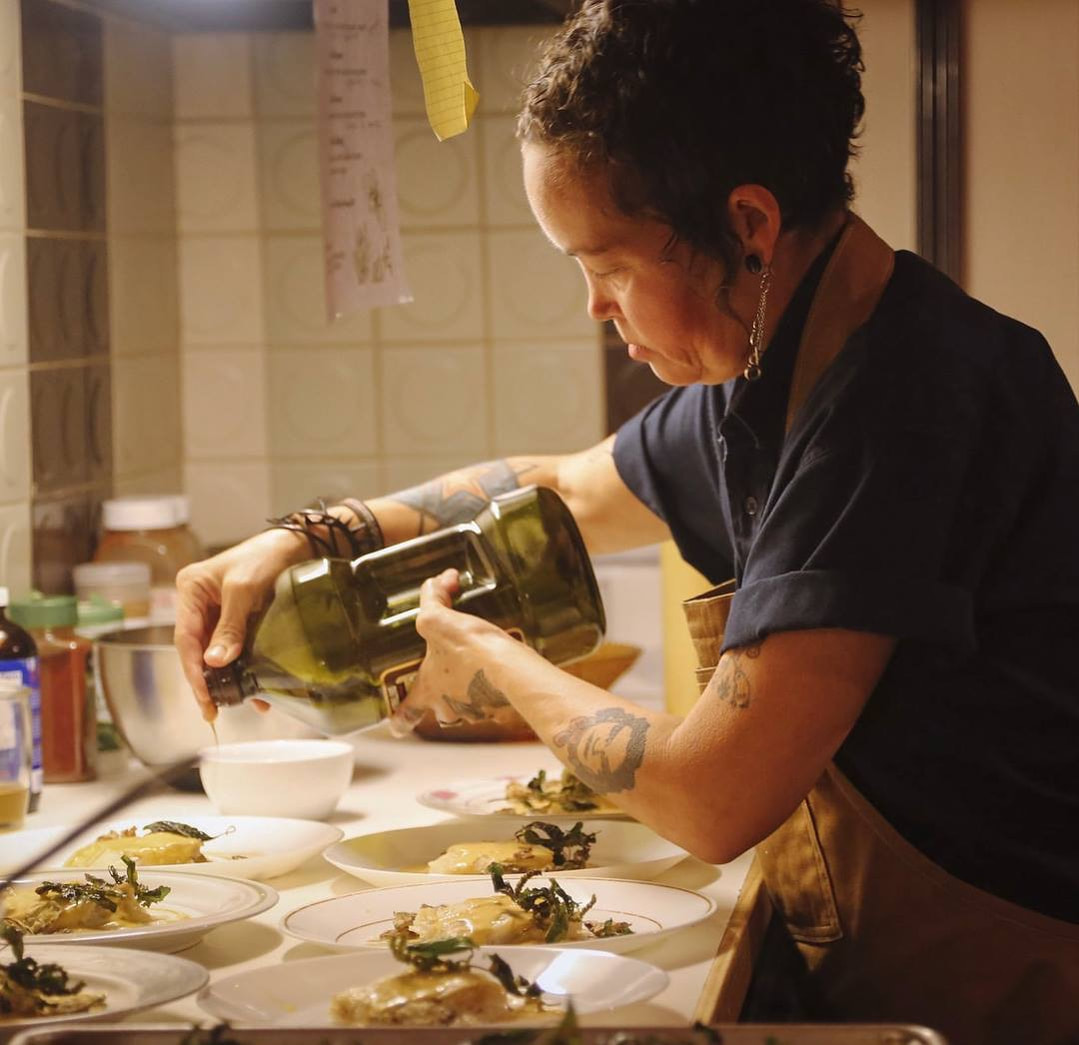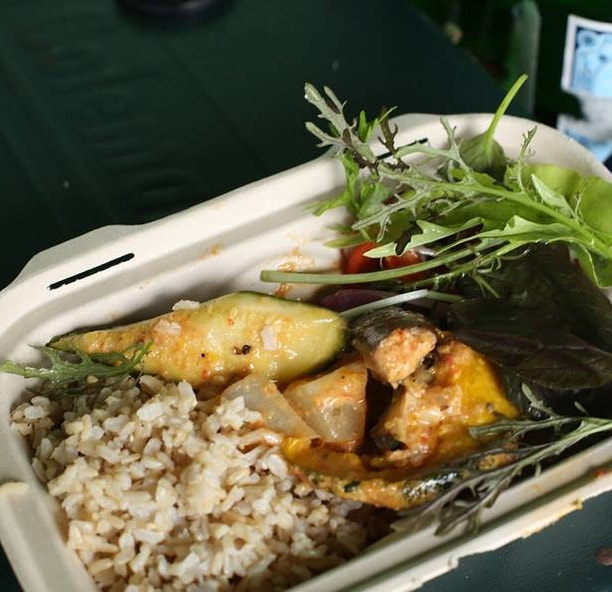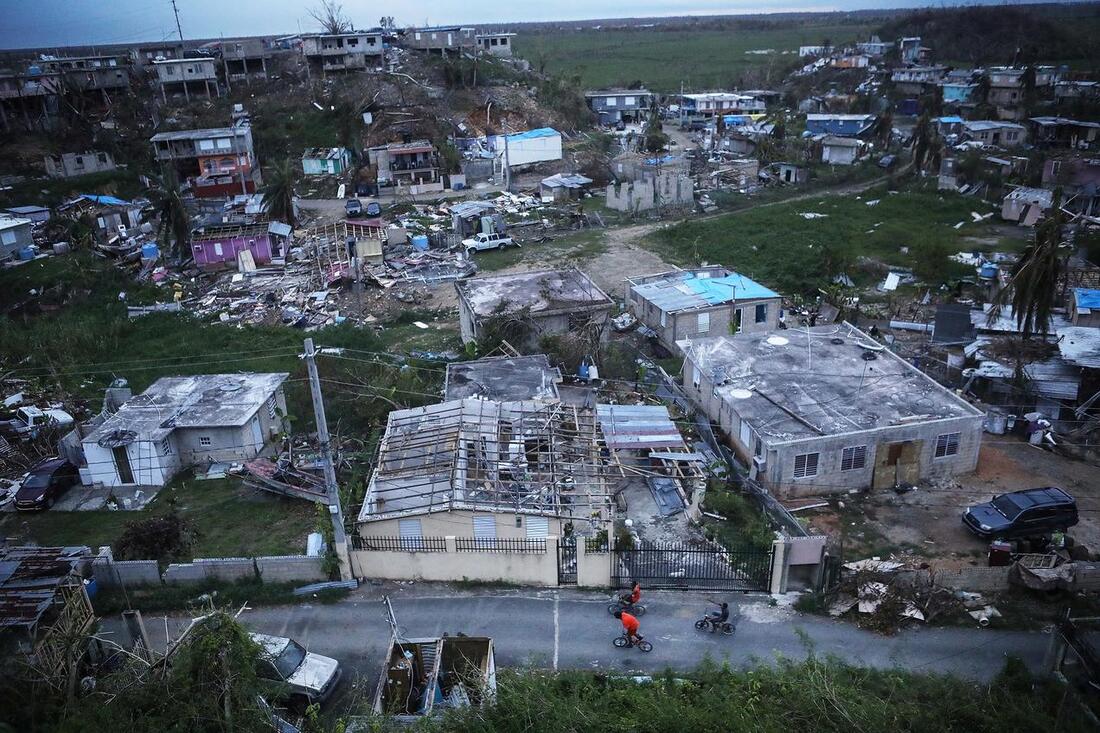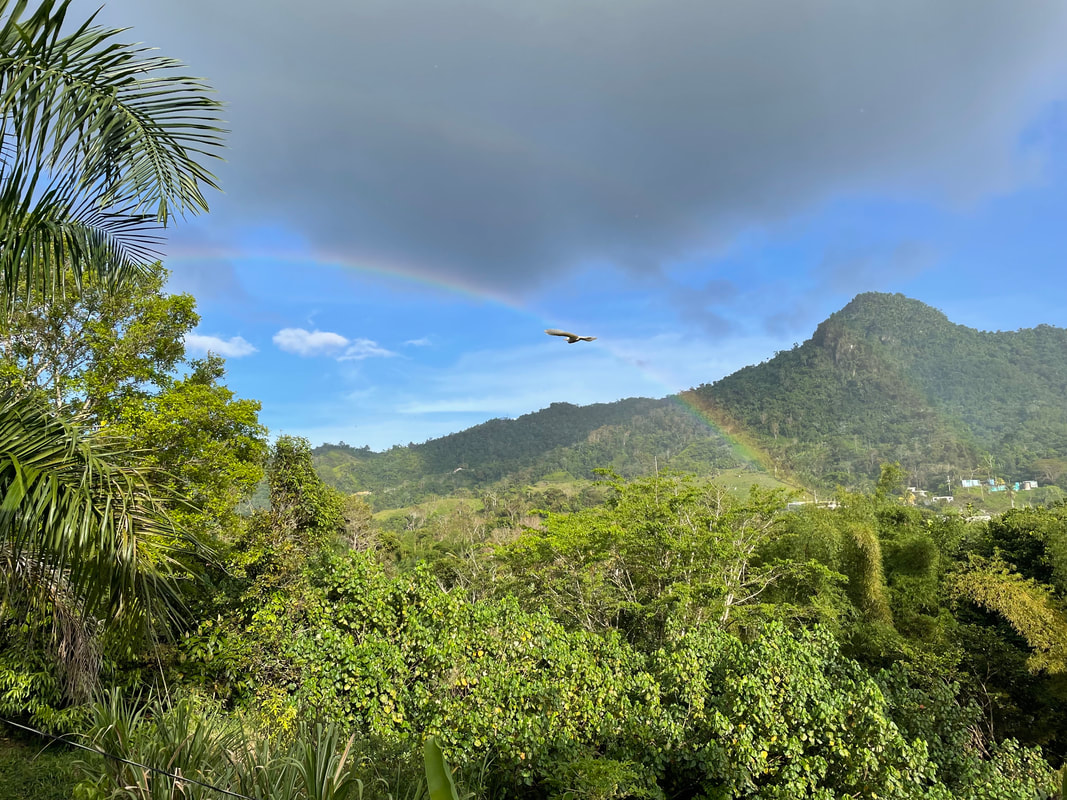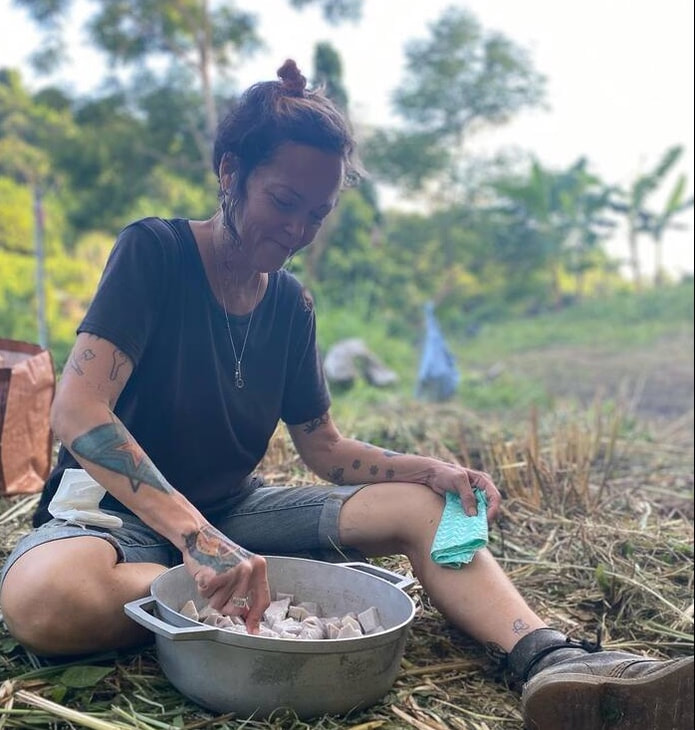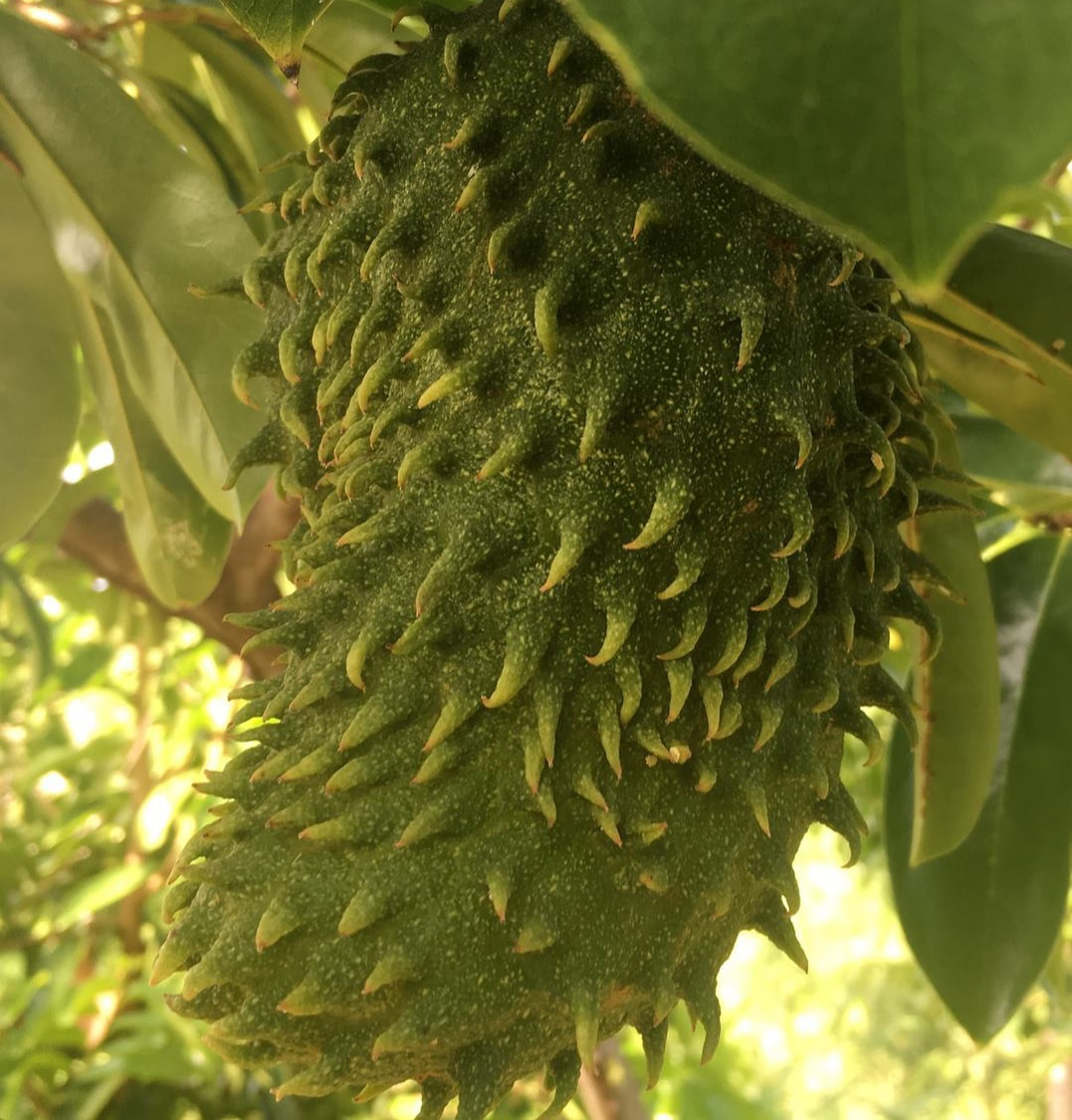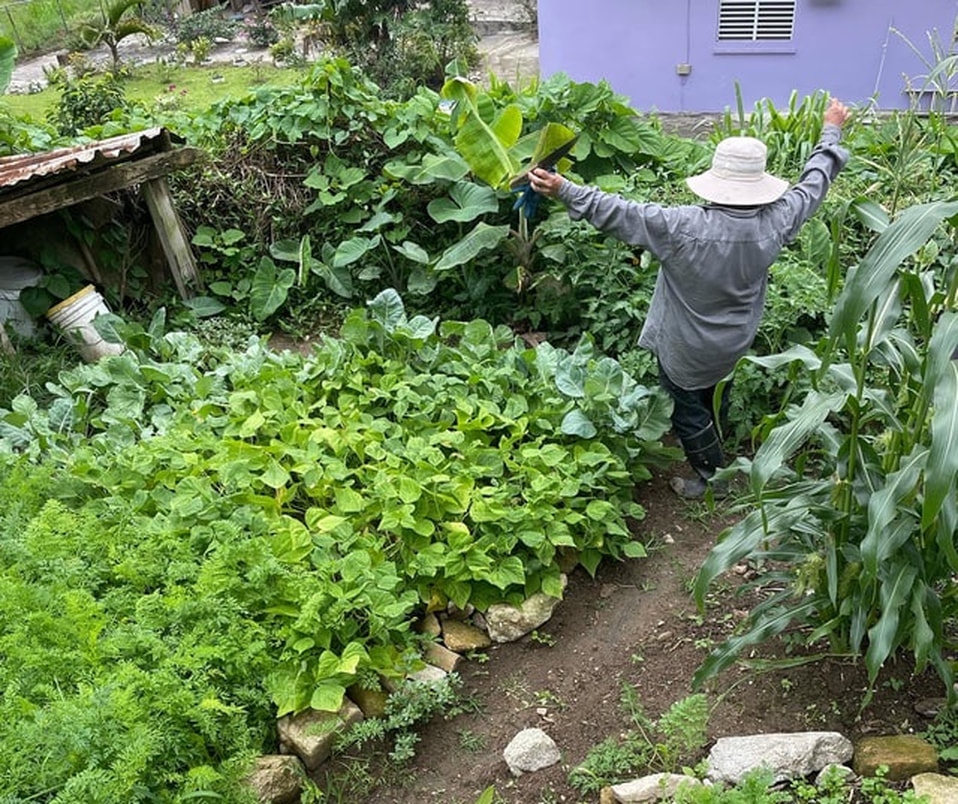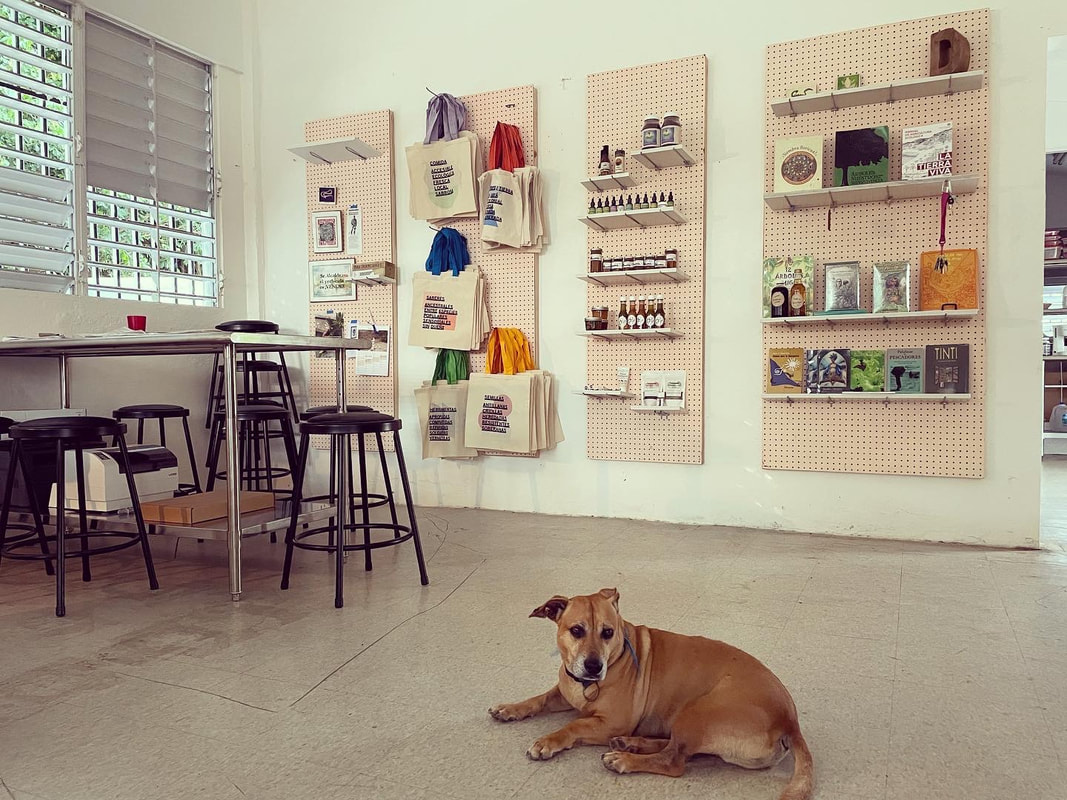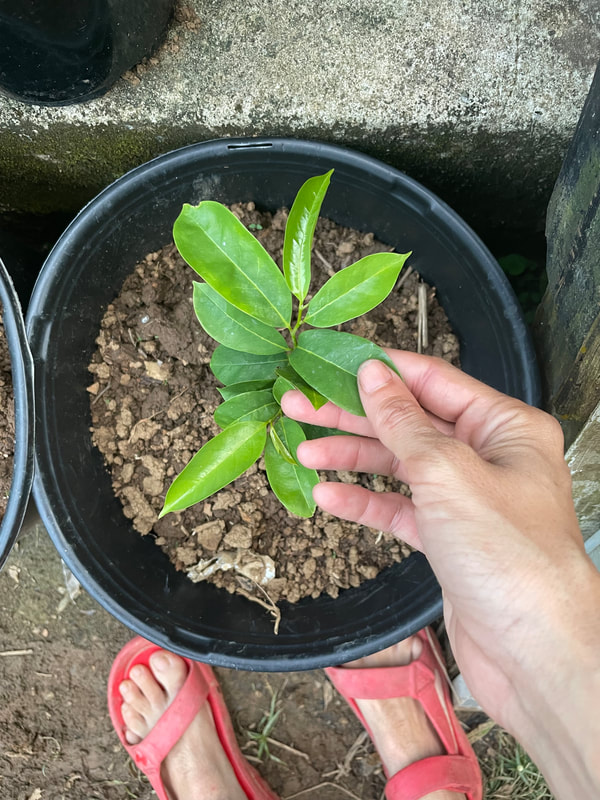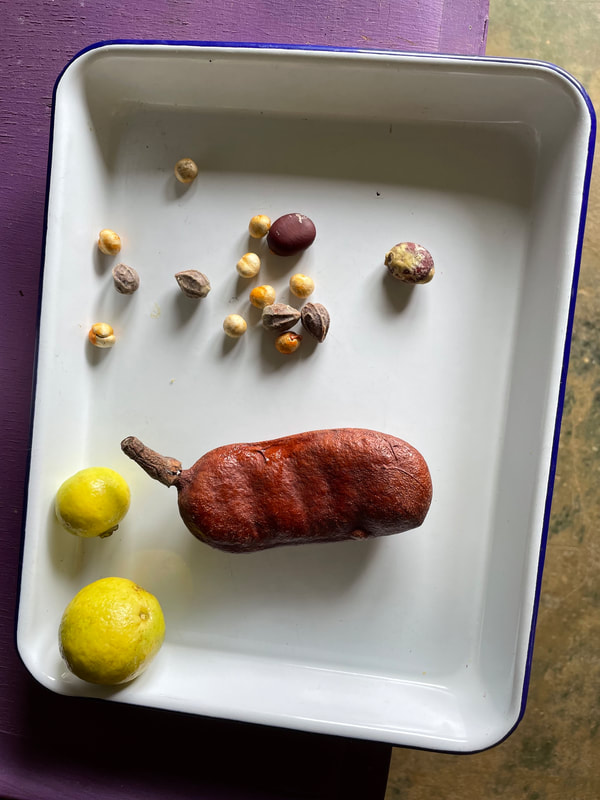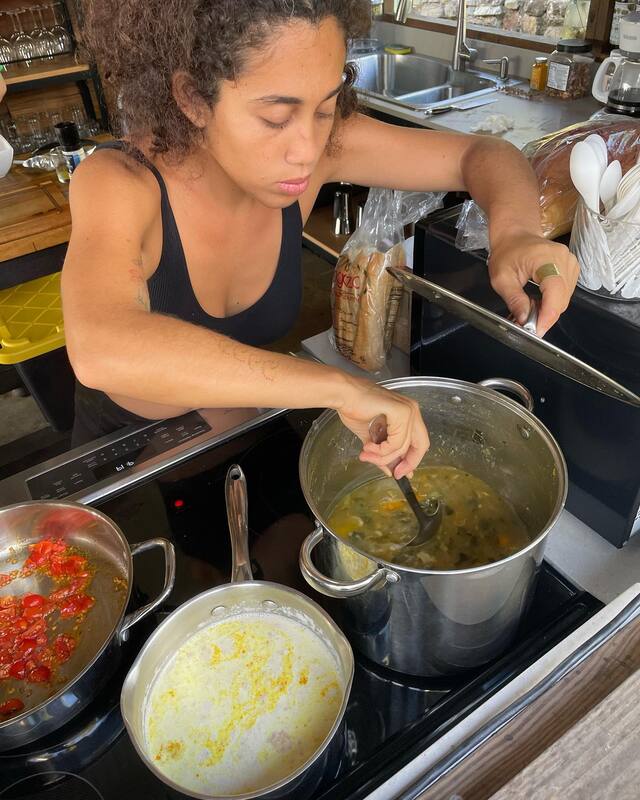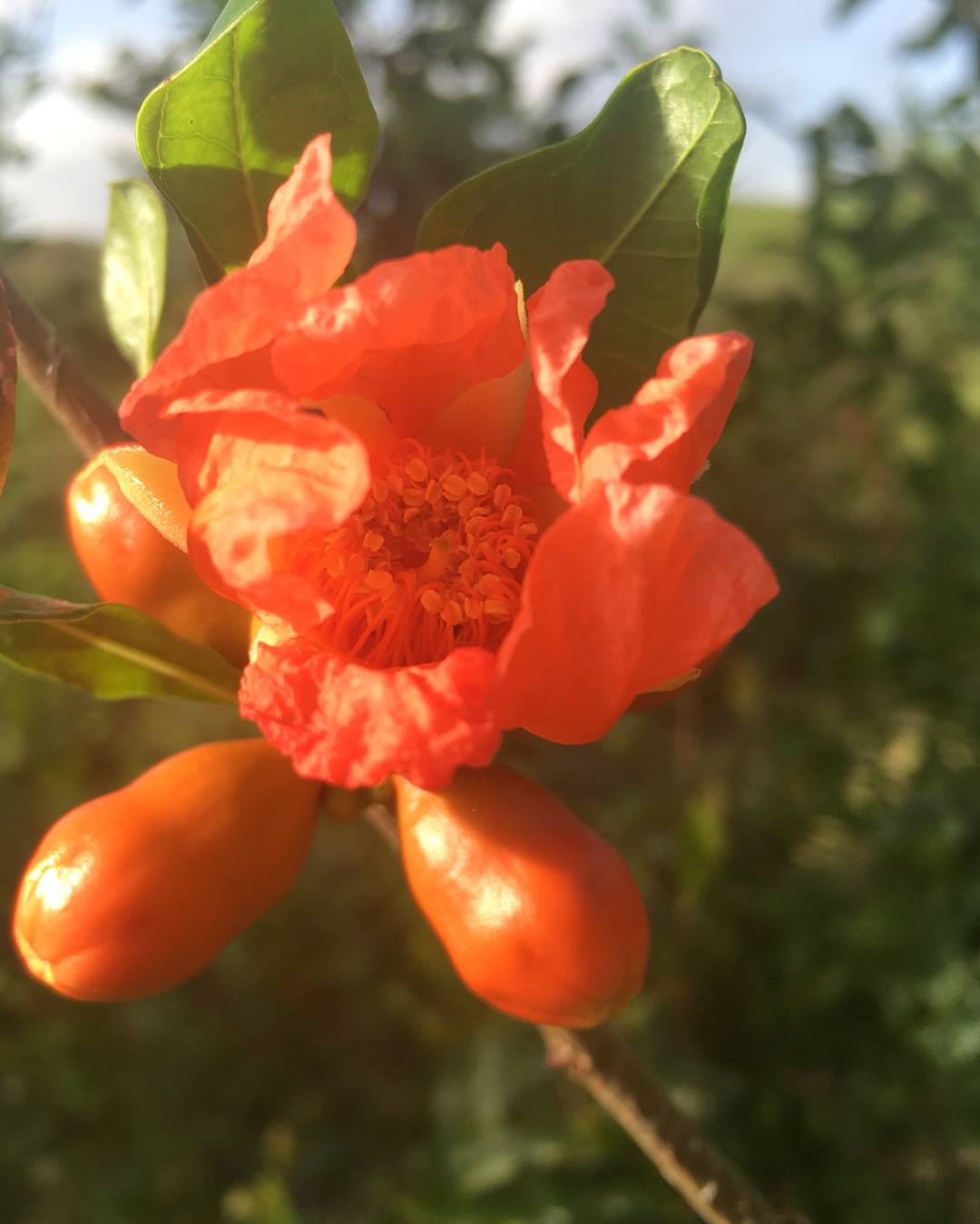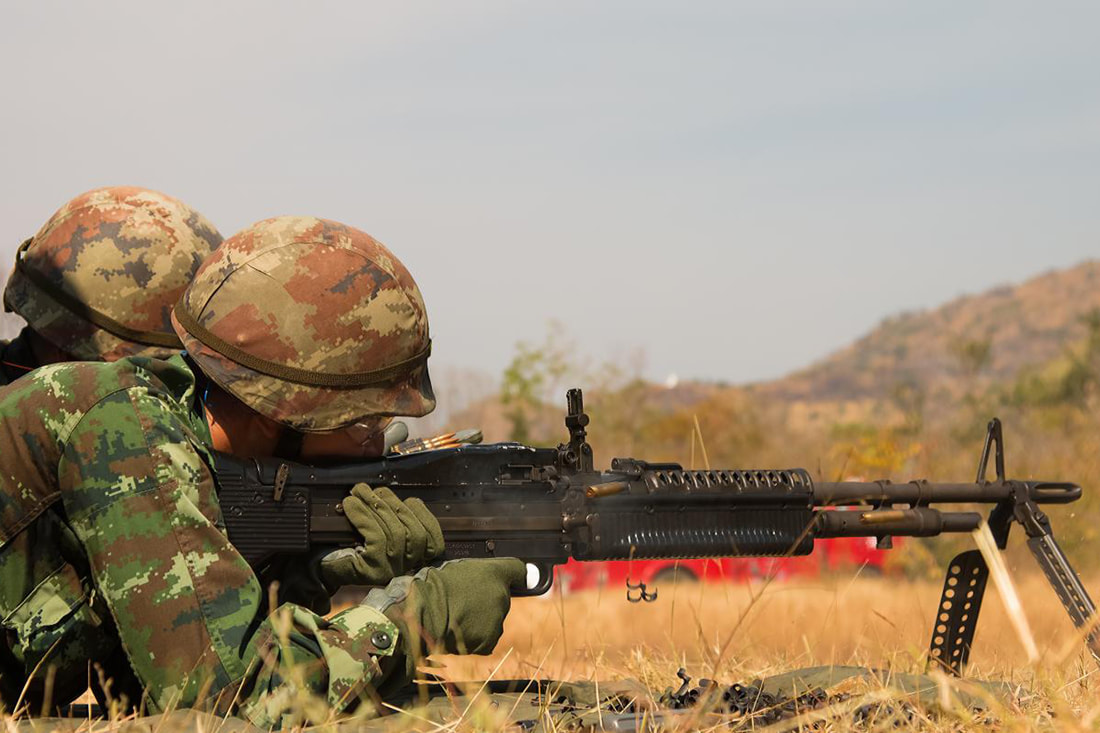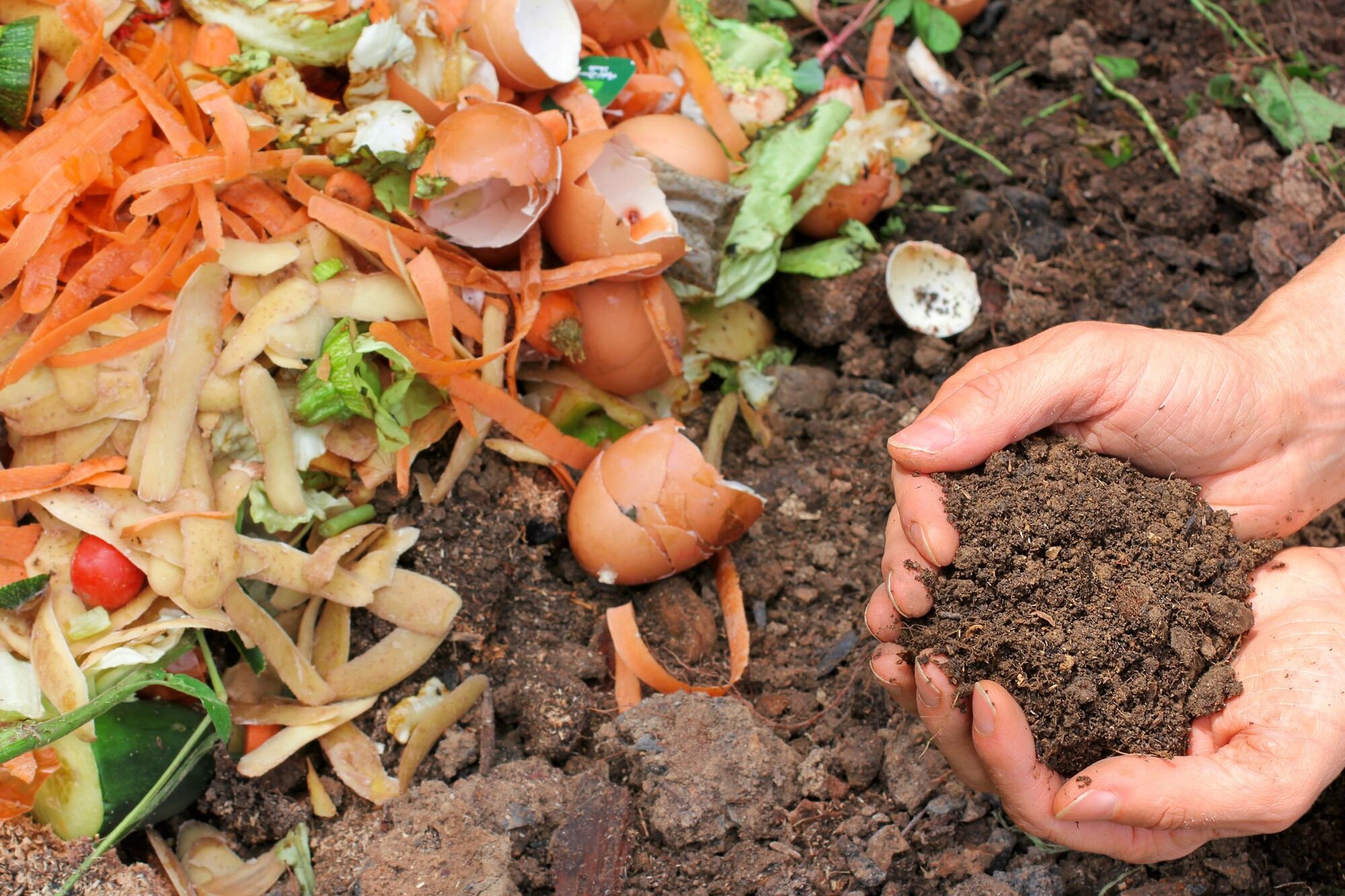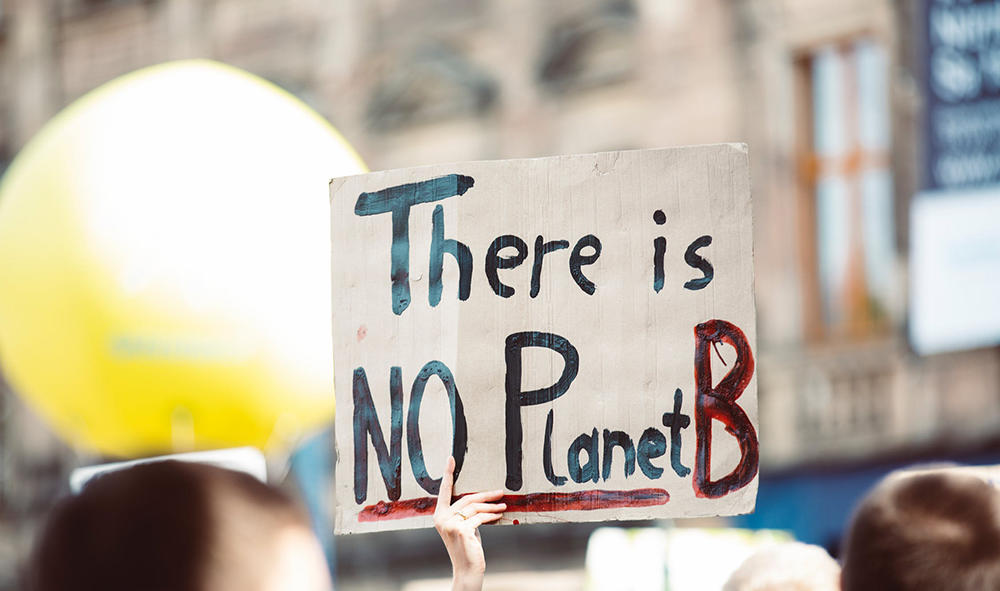Food Sovereignty in Puerto Rico / 15 minute read
El Departamento de la Comida in Puerto Rico is a non-profit collective that acts as an alternative agency in support of small-scaled, decentralized, local food projects. They have two main programs: 1) a Resource Library with tools, seeds, and educational materials, and 2) a Kitchen with product-making equipment and a retail point of sale. These programs support food sovereignty in Puerto Rico through shared resources, exchange of labor and knowledge, and food in all its forms!
El Departamento de La Comida is a World Centric nonprofit partner through our Regional Giving program. This program enables our Regional Sales Managers to make small grants to critical causes in the areas where they work.
We caught up with Tara Rodríguez Besosa and Kieran Murray from El Departamento de la Comida to learn more about their work:
How do the impacts of climate change in PR affect your work?
Tara: In PR and the Caribbean we see erosion that goes all the way from the coast - due to things like construction overdevelopment and commercial chemicals for agriculture - to the mountains where there is deforestation and lack of land protection. Climate change is real; it’s related to humans and how we relate to our ecosystems. Our work has to do with the recognition that frontline island communities (and their food sovereignty) are gravely affected by this. A lot of the projects we work with are food projects that don’t fall into the commercial farm or restaurant model. Instead they are community-led, informal projects; they have had to come up with new models due to climate change which asks us to adapt; like Hurricane Maria wiping out most of our food, our electricity, our housing. We see the connection between caring for our ecosystems and our surroundings as things that support our survival in the future. There is no denial of climate change in Puerto Rico; that is a privilege we don’t have.
We caught up with Tara Rodríguez Besosa and Kieran Murray from El Departamento de la Comida to learn more about their work:
How do the impacts of climate change in PR affect your work?
Tara: In PR and the Caribbean we see erosion that goes all the way from the coast - due to things like construction overdevelopment and commercial chemicals for agriculture - to the mountains where there is deforestation and lack of land protection. Climate change is real; it’s related to humans and how we relate to our ecosystems. Our work has to do with the recognition that frontline island communities (and their food sovereignty) are gravely affected by this. A lot of the projects we work with are food projects that don’t fall into the commercial farm or restaurant model. Instead they are community-led, informal projects; they have had to come up with new models due to climate change which asks us to adapt; like Hurricane Maria wiping out most of our food, our electricity, our housing. We see the connection between caring for our ecosystems and our surroundings as things that support our survival in the future. There is no denial of climate change in Puerto Rico; that is a privilege we don’t have.
The aftermath of Hurricane Maria | source: nrdc.org, Mario Tama/Getty
Climate change is also affecting our culture of food. Puerto Rico is an archipelago and has 4 seasons. Our fruit trees have a legacy and trajectory of flowering and bearing fruit in a particular season. We find ourselves as a younger generation going back to the land and connecting with our elders but in a time where things are not the same as they used to be. Mango trees no longer give out fruit in the same season as before. It’s affecting not only the way we farm, but the way we share stories about farming.
How are people supported to adapt to the changing climate while preserving culture?
Tara: Our indigenous ancestors used to leave food offerings to the goddess Guabancex (Taino wind goddess. Taino are the indigenous people of the Caribbean and Florida) so that she wouldn’t send Juracán. The English word “hurricane” is actually derived from the Taino word. There is a connection between the food we grow and how we can offer it as a gift or an offering. It’s about building a healthier relationship between the land that provides my food and what I am providing back to the land.
On top of climate disasters are capital disasters. We live in and experience the impacts of climate change and colonialism. Puerto Rico is the oldest colony. Communities are having to figure out how to survive and try to thrive in that context. We are facing a large emigration of talented people leaving the island because of this. There is little government support for Puerto Ricans to stay on their own island, yet there is support for non-Puerto Ricans to come to the island. It’s becoming unaffordable for local people to live here and land is inaccessible.
Tara: Our indigenous ancestors used to leave food offerings to the goddess Guabancex (Taino wind goddess. Taino are the indigenous people of the Caribbean and Florida) so that she wouldn’t send Juracán. The English word “hurricane” is actually derived from the Taino word. There is a connection between the food we grow and how we can offer it as a gift or an offering. It’s about building a healthier relationship between the land that provides my food and what I am providing back to the land.
On top of climate disasters are capital disasters. We live in and experience the impacts of climate change and colonialism. Puerto Rico is the oldest colony. Communities are having to figure out how to survive and try to thrive in that context. We are facing a large emigration of talented people leaving the island because of this. There is little government support for Puerto Ricans to stay on their own island, yet there is support for non-Puerto Ricans to come to the island. It’s becoming unaffordable for local people to live here and land is inaccessible.
The role of El Departamento is to recognize and support the projects that are staying here. Growing your own food is a political act that is not just good for the environment but good for people and our economy. Food sovereignty also reconnects us with other countries we have ancestral ties with because we grow similar foods and share similar agricultural practices. We want to know more about how Cuba or Haiti are growing these same veggies. The work we have chosen focuses on a way to not only feed ourselves, protect land and support the regeneration of ecosystems through the responsible food and medicine growing practices but also to build local autonomy within a colonial environment.
What programs do you have that support food sovereignty?
Kieran: El Departamento de la Comida has a physical space - a food hub - in San Salvador, Caguas, which is a rural farming and forest area at the headwaters of a river. There we have the Agroteca which is a resource library. There are several collections: the tool library, seed library, and educational materials. We also organize brigades to bring resources out to different farms so learning is more accessible. We also have a kitchen, our Cocina, at the food hub space where we focus on processing and preserving food and ingredients - things that would typically become food waste if they were not sold or consumed within little time of harvest. The kitchen is also used for recipe development, for experimentation, and soon for the community to use. We have a store in the space, or an inventory, that is all products purchased from farmers, cooks, and other makers in Puerto Rico. We take those products to markets around the island. A lot of times these farmers and producers spend all their time focusing on productions and may not be able to go to market, or if they do it’s a local market to them. We’ve been able to travel to different markets inside and outside the metro area to give these products more visibility.
Kieran: El Departamento de la Comida has a physical space - a food hub - in San Salvador, Caguas, which is a rural farming and forest area at the headwaters of a river. There we have the Agroteca which is a resource library. There are several collections: the tool library, seed library, and educational materials. We also organize brigades to bring resources out to different farms so learning is more accessible. We also have a kitchen, our Cocina, at the food hub space where we focus on processing and preserving food and ingredients - things that would typically become food waste if they were not sold or consumed within little time of harvest. The kitchen is also used for recipe development, for experimentation, and soon for the community to use. We have a store in the space, or an inventory, that is all products purchased from farmers, cooks, and other makers in Puerto Rico. We take those products to markets around the island. A lot of times these farmers and producers spend all their time focusing on productions and may not be able to go to market, or if they do it’s a local market to them. We’ve been able to travel to different markets inside and outside the metro area to give these products more visibility.
In order to advance food sovereignty in Puerto Rico we need to be building strong relationships across the island, between different communities and different producers that live here. So much food is imported to the island. Strengthening all aspects of our local food systems is essential. That’s why our programs are designed to support farmers at all stages: planting, harvesting, processing, and connecting with consumers. And not viewing people as just “consumers” but blurring that line between who is making the food versus growing the food and building relationships across those groups through workshops and events.
Tara: The existing food systems do not serve us. They are based on industrial, obsolete practices that don’t take into consideration the health of our ecosystems, climate change, and equity. We have been not only researching but also experimenting with and practicing with new models. What do new models look like? What can we do as a collective that is not just about criticizing the existing systems but putting into place some of the ideas, models, and dreams that we have. We are people who have experienced food insecurity, living on islands that are facing huge challenges. We want to encourage shared resources. We want to promote crops that wouldn’t be recognized by the typical commercial food industry. We want to recognize the culture in agriculture.
What’s a favorite product that embodies the values behind food sovereignty and/or El Departamento?
Tara: Ayurdobo. This is a product we just started selling in the store but that I have been a fan of for years. It’s an ayurvedic “adobo”. It’s a product that lets brings in ayurvedic practices but adapted to our local ecosystems. The maker, Jeyma, has been able to bring in really amazing recipes by recognizing plants that are native to Puerto Rico and have similar qualities. Jeyma has a word we always use “farmilia”. I think of Ayurdobo as being made by someone in my farmilia. Ayrudobo is also one of few Queer-led food projects in Puerto Rico which is something El Departamento de la Comida is focused on supporting.
Kieran: I’m going to go with Obvio Microbio. I’ve been obsessed after taking their workshop on how to make sauerkraut and learning about the science behind preserving and evolving food through fermentation. When I make it there is an ancestral piece because I am half-Polish and I grew up eating krauts and pickles of all sorts - my grandpa worked in a sauerkraut factory - and so being able to make it with my own hands is like reconnecting with that. Growing up, sauerkraut was always very processed and store bought but now I can make it myself and adapt it to this culture’s food crops. I make it with herbs that grow here and that I can grow - oregano brujo, turmeric, and other ingredients from here in Puerto Rico. Being empowered to make your own food is an important part of food sovereignty.
Tara: Ayurdobo. This is a product we just started selling in the store but that I have been a fan of for years. It’s an ayurvedic “adobo”. It’s a product that lets brings in ayurvedic practices but adapted to our local ecosystems. The maker, Jeyma, has been able to bring in really amazing recipes by recognizing plants that are native to Puerto Rico and have similar qualities. Jeyma has a word we always use “farmilia”. I think of Ayurdobo as being made by someone in my farmilia. Ayrudobo is also one of few Queer-led food projects in Puerto Rico which is something El Departamento de la Comida is focused on supporting.
Kieran: I’m going to go with Obvio Microbio. I’ve been obsessed after taking their workshop on how to make sauerkraut and learning about the science behind preserving and evolving food through fermentation. When I make it there is an ancestral piece because I am half-Polish and I grew up eating krauts and pickles of all sorts - my grandpa worked in a sauerkraut factory - and so being able to make it with my own hands is like reconnecting with that. Growing up, sauerkraut was always very processed and store bought but now I can make it myself and adapt it to this culture’s food crops. I make it with herbs that grow here and that I can grow - oregano brujo, turmeric, and other ingredients from here in Puerto Rico. Being empowered to make your own food is an important part of food sovereignty.
Photo Credits: El Departamento de la Comida Puerto Rico
